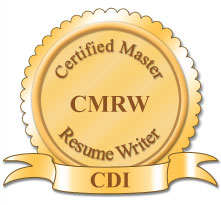 STRESS.
STRESS.
Just the word brings on a quickening of my heartbeat, a tightening in my chest and upper back, and a narrowing of my brow. These are the signs of stress for me. When my stress level gets really high, I might feel a pulse in my left temple that is alarmingly out of my control.
Stress is not a comforting or comfortable feeling, and when experienced on an ongoing basis can literally kill.
But is stress inherently a bad thing? It turns out it’s not.
Stress raises our levels of cortisol and adrenaline, hormones that prepare us for reacting under an imminent threat. This response is useful not just for escaping from a physical attack, but also for handling non-life-threatening challenges that come our way.
For instance, I am historically a high performer on standardized tests. I have pulled scores that surprise me as being significantly higher than my practice test scores. Believe me, I felt plenty of stress when I took the SAT, the LSAT, and the New York Bar Exam. It was stress that made me focus intensely, work fast, and think more clearly than I ever would under everyday conditions.
I feel stress every time I give a presentation or even write a blog article. Stress has helped me in multiple job interviews. Stress somehow got me, as a 13-year-old gymnast, to earn a medal in my “worst” event (vault) at the New Jersey State Championship – and to win the competition in my age group. Stress pushes me to perform.
I never thought I would say this, but… I would not want to give up my stress!
However, since there are inarguably negative health effects to persistent stress, it’s worth looking at how to take a break from stressful episodes. I think this is where things like exercise and meditation come in. If I did not have my daily yoga and swimming practice, I might never get a break from my anxiety-ridden daily life. Hugs help too (they release oxytocin, which helps our heart cells regenerate).
Psychologist Kelly McGonigal, Ph.D., in a TED Talk, noted that how we manage stress is key to how harmful or helpful it is. If someone views stress positively, that person is likely “to be less stressed-out, less anxious and more confident.” Stress can help us with solving problems, tackling challenges, and bouncing back from failure.
Not only that, but if someone views stress as helpful, their physical response actually changes! In particular, their blood vessels do not constrict, but instead stayed relaxed. That difference, compounded over time, could easily be the distinguishing factor between an early heart attack and living into old age.
McGonigal recommends that we become aware of our negative thinking, so that we avoid defaulting to drama and jumping to unsupported conclusions. The support of friends, family, and colleagues can be key in this process.
I historically have viewed some of my stress as positive and other as negative. My commitment now is to spin it to positive as frequently as possible so I can live a long and stress-managed (not stress-free) existence.
Do you experience stress as a positive or negative influence in your life? What techniques do you find useful for managing stress? Please share below!
[This article was inspired by John H. Ostdick’s article, “The Upside to Stress,” published in the May 2014 issue of Success Magazine.]









